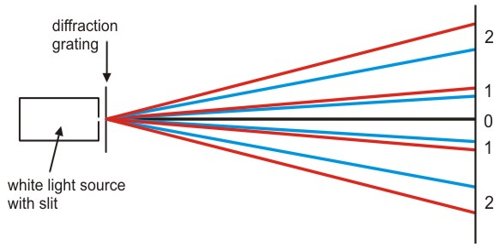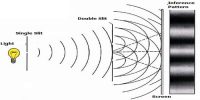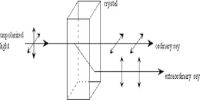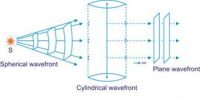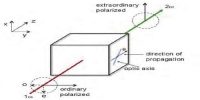A diffraction grating is an optical component with a usual model. The form of the light diffracted by a grating depends on the construction of the elements. It is an optical component whose effect is alike to a prism: it splits white light into its component colors.
The special device for the production of diffraction is called grating. It consists of a very large number of narrow slits of equal width side by side. The grating is primarily of two types; viz –
(1) Transmission grating and (2) Reflection grating.
Diffraction gratings are used to scatter light; that is to spatially divide light of diverse wavelengths. They have replaced prisms in most fields of spectral analysis.
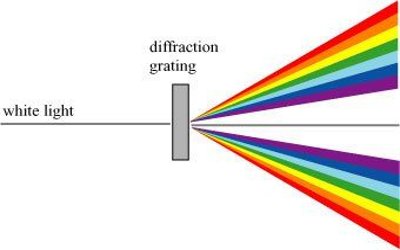
Fig: Diffraction Grating
Some differences between gratings and prisms
- Gratings are usually (but not always) operated in reflection geometry, so they are not subject to the limitation that transmissive optical materials have–becoming opaque at UV and far IR wavelengths
- Prisms make one rainbow, gratings can make several
- Prisms operate by refraction while gratings operate by diffraction.
